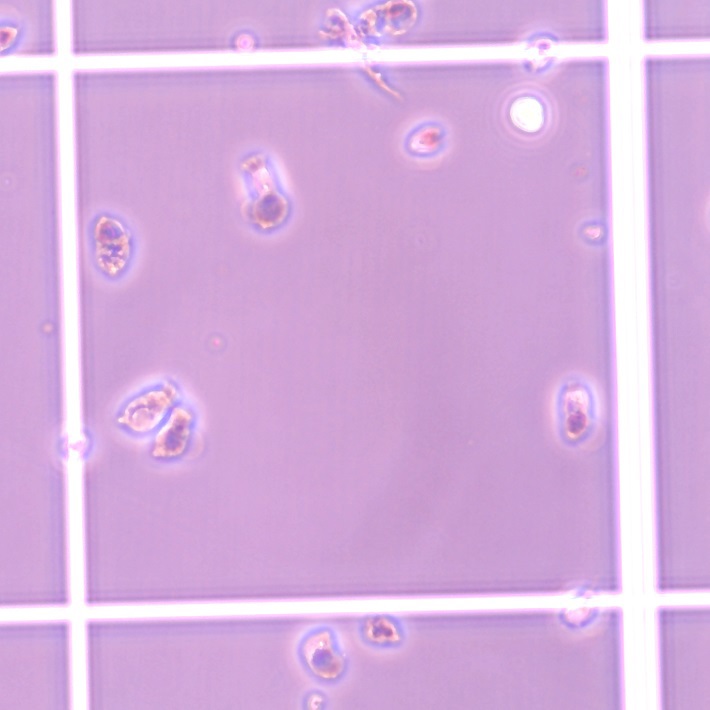Mucosal and systems immunology
&width=710&height=710)
Understanding these immunological changes can help us to comprehend what is driving vaccine hyporesponsiveness, increased susceptibility to disease and elucidate the host-pathogen dynamics that influence transmission. In addition, by understanding the immunological mechanisms underlying development of tissue-resident memory, we aim to improve mucosal vaccination strategies, which have the potential to confer local protection against respiratory tract infections.
Aim of the research
Understanding human mucosal immunity in the context of bacterial and viral respiratory tract infections
We are using minimally-invasive sampling methods to collect human cellular and soluble and microbial material from the human upper respiratory tract. The application of miniaturized immunological tools has allowed the study of innate and adaptive mucosal immune populations and their involvement in viral and bacterial infections. To gain mechanistic insights we also apply advanced in vitro tissue cultures. Currently, we are using these tools to understand local immunity in the setting of respiratory viral infections, such as SARS-CoV-2.
…Understanding human mucosal immunity in the context of bacterial and viral respiratory tract infections
We are using minimally-invasive sampling methods to collect human cellular and soluble and microbial material from the human upper respiratory tract. The application of miniaturized immunological tools has allowed the study of innate and adaptive mucosal immune populations and their involvement in viral and bacterial infections. To gain mechanistic insights we also apply advanced in vitro tissue cultures. Currently, we are using these tools to understand local immunity in the setting of respiratory viral infections, such as SARS-CoV-2.
Analysis of differences in immunity in the circulation and mucosa of vulnerable populations (e.g. elderly, children, co-infections)
Infections disproportionately affect certain risk groups, such as the elderly, young children, or individuals with co-infections (helminth, viral, bacterial). We found that children and elderly have clearly distinct mucosal immune profiles, we are now further exploring the consequences of this on susceptibility to infections. We are also exploring how individuals in low-middle income countries have an altered immune system and the consequences this has for susceptibility to infection.
Application of high-dimensional tools and analyses to measure and predict responses to vaccinations
Using state-of-the-art immunological approaches (CyTOF, spectral flow cytometry, RNA-Seq), we can generate large amounts of data to discover new pathways and mechanisms of responses to infection and vaccination. We are applying such technologies to human lymphoid tissue collected with fine needle aspiration, nasal mucosal and systemic samples in order to understand what are the factors responsible for a good or poor response to vaccination and how this could be improved.
Group members
- Simon Jochems (Group leader)
- Lisa King (postdoc)
- Youvika Singh (postdoc)
- Wesley Huisman (postdoc)
- Dennis Hoving (postdoc)
- Alicia de Kroon (technician)
- Sanne Steenbergen (technician)
- Danny de Vos (PhD student
- Marouba Cisse (PhD student)
- Thomas Wulffraat (PhD student)
- Giovanni Loe-Sack-Sioe (PhD student)
Partners / Collaborators
Key collaborators are: Anna Roukens (LUMC), Maria Yazdanbakhsh (LUMC), Geert Groeneveld (LUMC), Marlies van Houten (Spaarne Gasthuis Hospital), Moustapha Mbow (Cheikh Anta Diop University) and Daniela Ferreira (University of Oxford)
Research cluster(s)
Selected publications
Mbow M, Hoving D, Cisse M, Diallo I, Honkpehedji YJ, Huisman W, Pothast CR, Jongsma MLM, König MH, de Kroon AC, Linh LTJ, Azimi S, Tak T, Kruize YCM, Kurniawan F, Dia YA, Zhang JLH, Prins C, Roukens AHE, de Vries JJC, Wammes LJ, Smits HH, Adegnika AA, Zlei M, Kuijpers TW, Wieske L, Dieye A, Mboup S, Kremsner PG, Eftimov F, Velavan TP, Berlin I, Heemskerk MHM, Yazdanbakhsh M, Jochems SP, BEAT-COVID consortium, COVID-19 Leiden University Medical Center study team. Immune responses to SARS-CoV-2 infection in sub-Saharan Africa and western Europe: a retrospective population-based study. Lancet Microbe. In press.
…Mbow M, Hoving D, Cisse M, Diallo I, Honkpehedji YJ, Huisman W, Pothast CR, Jongsma MLM, König MH, de Kroon AC, Linh LTJ, Azimi S, Tak T, Kruize YCM, Kurniawan F, Dia YA, Zhang JLH, Prins C, Roukens AHE, de Vries JJC, Wammes LJ, Smits HH, Adegnika AA, Zlei M, Kuijpers TW, Wieske L, Dieye A, Mboup S, Kremsner PG, Eftimov F, Velavan TP, Berlin I, Heemskerk MHM, Yazdanbakhsh M, Jochems SP, BEAT-COVID consortium, COVID-19 Leiden University Medical Center study team. Immune responses to SARS-CoV-2 infection in sub-Saharan Africa and western Europe: a retrospective population-based study. Lancet Microbe. In press.
Hoving D, Marques AHC, Huisman W, Nosoh BA, de Kroon AC, van Hengel ORJ, Wu BR, Steenbergen RAM, van Helden PM, Urban BC, Dhar N, Ferreira DM, Kwatra G, Hokke CH, Jochems SP. Combinatorial multimer staining and spectral flow cytometry facilitate quantification and characterization of polysaccharide-specific B cell immunity. Commun Biol. 2023 Oct 28;6(1):1095.
Van Dorst MMAR, Azimi S, Wahyuni S, Amaruddin AI, Sartono E, Wammes LJ, Yazdanbakhsh M, Jochems SP. Differences in Bacterial Colonization and Mucosal Responses Between High and Low SES Children in Indonesia. Paediatric Infectious Disease Journal. 41(6):496-506, 06 May 2022.
Roukens AHE, Pothast CR, König M, Huisman W, Dalebout T, Tak T, Azimi S, Kruize Y, Hagedoorn RS, Arbous SM, Zhang JLH, Verheij M, Prins C, Zlei M, De Bie F, Staal FJT, Van Dongen J, Van der Does AM, Hiemstra PS, De Vries JJC, Janse JJ, Roestenberg M, Myeni SK, Kikkert M, Yazdanbakhsh M, Heemskerk MHM, Smits HH, Jochems SP; BEAT-COVID group; COVID-19 LUMC group Prolonged activation of nasal immune cell populations and development of tissue-resident SARS-CoV-2 specific CD8 T cell responses following COVID-19. Nature Immunology 23, 23–32, 2022.
Jochems SP*, Marcon F*, Carniel BF, Holloway M, Mitsi E, Smith E, Gritzfeld JF, Solorzano C, Reine J, Pojar S, Nikolaou E, German EL, Hyder-Wright A, Hill H, Hales C, de Steenhuijsen Piters WAA, Bogaert D, Adler H, Zaidi S, Connor V, Gordon SB, Rylance J, Nakaya HI, Ferreira DM. Inflammation induced by influenza virus impairs human innate immune control of pneumococcus. Nature Immunology 2018 Dec;19(12):1299-1308.